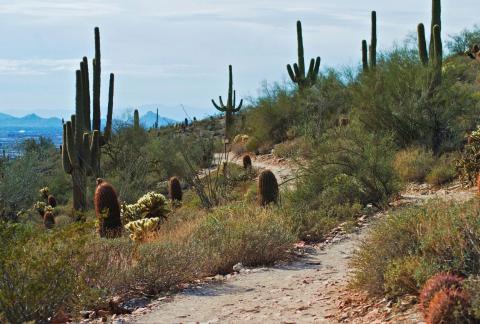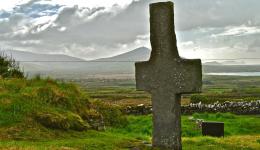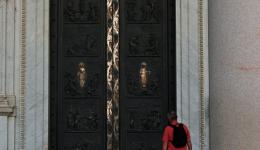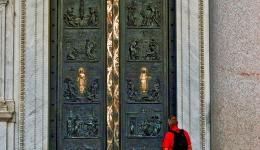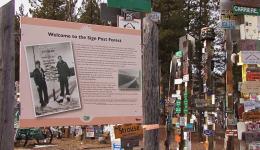Category:
Mark 1:1-12
There is a shell motif on the front of the pulpit in the church building where I frequently worship, in Toronto. Interesting, that there is not a PetroCanada or Esso logo to match the worldwide ubiquitous Shell Oil symbol. But in our sanctuary?! The shell is, of course, an ancient symbol of pilgrimage. Of the many starting points for pilgrimage in medieval Europe, some pilgrims started from a city in Holland where in more recent times the Shell Oil Company had its roots and head-office. The pilgrims were beginning the long walk route to Sandiego de Compestela, where purportedly were kept the holy relic bones of St. James, disciple of our Lord, who met his death by drowning. Hence the more nautical symbol, and pilgrims usually wore a shell as they traveled to commemorate and to inspire. So, it’s a sign of pilgrimage for your car, if you will. (I’m not sure Shell Oil knows or remembers this.)
Lent is upon us – the forty days of between starting with Ash Wednesday and ending with the events of Holy Week: - Palm Sunday, Maunday Thursday, Good Friday, and Easter. Ash Wednesday – a ‘moveable feast, as is Easter (and related), depending on the seasons and cycles of the moon, was celebrated on February 10th in 2016.
The number forty is used hundreds of times in Scripture and is to be taken seriously but not always literally, as symbol of God’s searching intervention in the world, in the lives of His People, in the Life of a Person. There were 40 days and nights or rain associated with the Flood in the Noah story. Again, there are many examples of the use of 40, but the best known are these: 1. The Wilderness Wandering of ancient Israel as God’s People were delivered out of slavery in Egypt to eventual freedom in the ‘Promised Land.’ 2. The Wilderness Experience of Jesus (aka: The Temptation).
Lent is symbolic of the experience of life’s testing, provocations and trials, of our journeys into the deserts and barrens of life. It’s a ‘meanwhile’ - a time ‘in-between.’ It’s about arduous journeys, times of hardship and perplexity – of having to do without. It’s intended to be a Journey of Faith in which those who trust God and follow Christ experience and leave behind treks and tracks of love. The Journey God on which God takes us is ‘a journey of love’ though we will not always, if ever, feel it so. And, of course, the beginning of Lent with Ash Wednesday follows hard upon Mardi Gras (or ‘Fat Tuesday’), where Christians use to ‘shrove’ the house and get rid of any leaven within. Mardi Gras (before its present excesses in various centres) was to be the last or a heightened day of rich foods, "fat eating" before the start of the fasting period of Lent.
Pancakes are associated with this day because they were a way to use up rich foods such as eggs, milk, and sugar. The liturgical fasting expected of Christians emphasized eating plainer food. Making pancakes, using up rich foods in the house, and so on, was like the Jewish practice of getting rid of leaven in the house, in preparation for Passover, a practice that carried over from one branch of God’s ‘covenant-tree’ to another. In preparation for the festival of Passover, Jews went through the house getting rid of leaven (a symbol of sin). On the day before Passover began the family cleansed the house thoroughly and searched diligently for any leaven - or any food that had leaven in it. This ritual cleansing was a preparation for, and a sign of: redemption, because redemption requires a letting go of sins, of the old life to embrace the new life God offers. I Corinthians 5:7 – “Get rid of the old yeast, so that you may be a new unleavened batch—as you really are. For Christ, our Passover Lamb, has been sacrificed.”
So, of course it’s about self-examination and repentance. It’s about getting the house, and our own heart and life, in order before God - clean and ready. Again, Shrove Tuesday was an ancient practice of the Church. And it used to be about more than having pancakes. It was about being ‘shriven’ – being pensive and repentant, remorseful. The word ‘shrove’ is a form of the English word ‘shrive,’ which means to obtain absolution for one's sins through confession and penance. (The Old English was: scrīfan, from Latin scrībere, ‘to write.’) Protestants believe that each believer is a priest before God and so we may confess our sins one to another, and be healed.’
1. A Time of Self-examination, of considering of what wrongs (things we should not have done; things we should have done . . .) we need to repent, and what amendments of life or areas of spiritual growth for which especially we need to seek God's help in dealing with our sins.
2. A Time That Calls for Honesty. The Mardi Gras custom of wearing masks and costumes which hide our true identity were seen as a preparation for the true meaning of the day, which is to strip off the masks we all wear – to be authentic. We seek to put off the old life and open ourselves to the new life of redemption.
3. A Time of Preparation for Spiritual Battle. With the temptation comes the way of escape – through Scripture. Getting right perspective not only about what we are to be and do – but also ‘how.’
There are of course three aspects to any Journey. There is a Beginning, a Passing Through or Over; and there is an Ending. – ‘This too shall pass.’
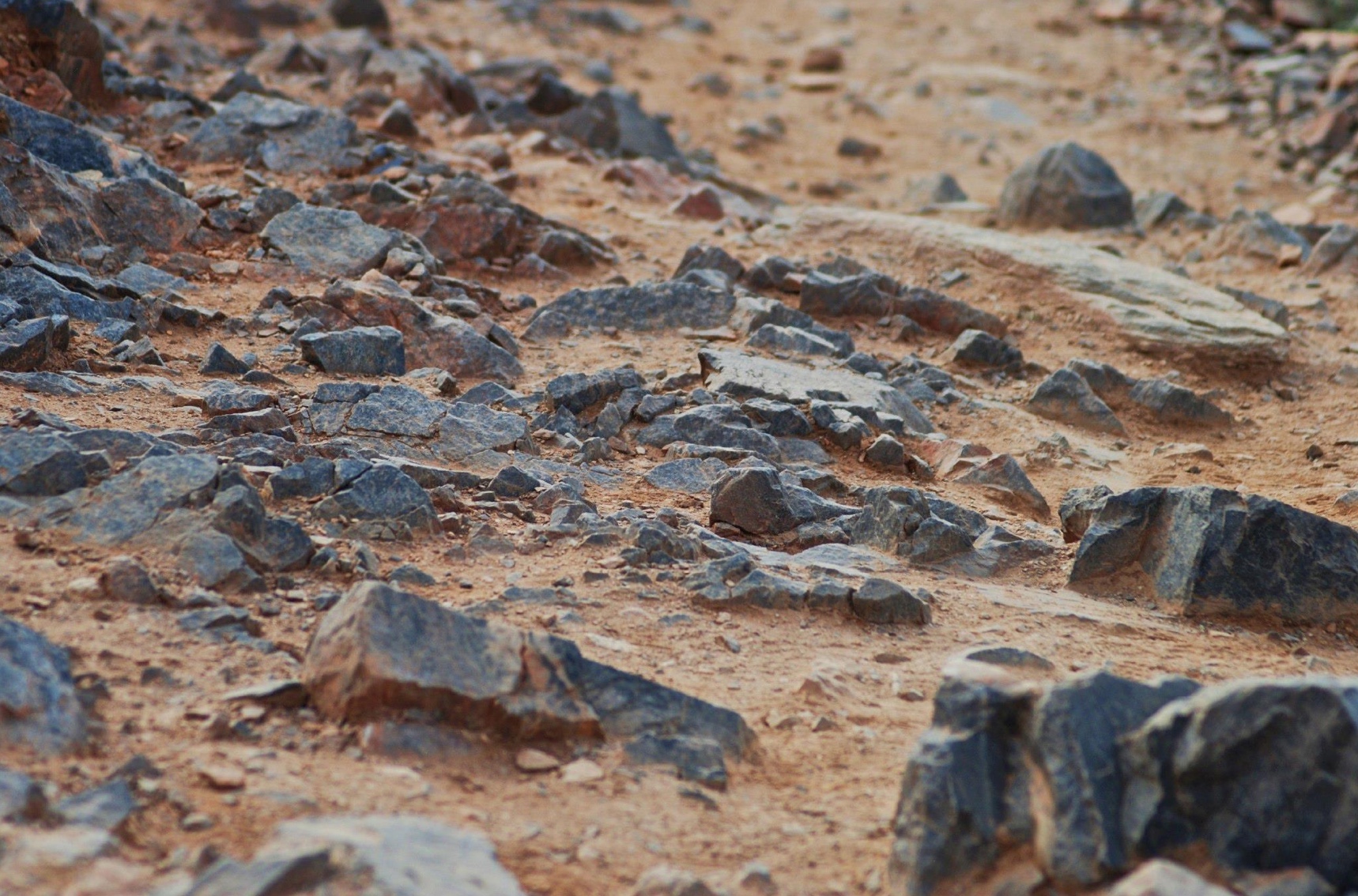
I. THE JOURNEY STARTS
Surprise! Perhaps we didn’t expect to find ourselves here; to be on this journey at this time; in this job, this classroom, this neighbourhood, this city; with this diagnosis, this difficulty and danger: with this cancer. We cannot imagine the Journey that Syrian individuals and families have been on and will continue on (and other refugees and migrants like them in so many war-torn areas of our world). This is not how we prefer to start a Journey. But we'e been thrown upon it.
The Holy Spirit sent Jesus out into the wilderness following His baptism. The verb ‘send’ that Mark uses in this text means ‘to throw forcefully.’ Was Israel expecting things to go a lot more smoothly now that they were out of Egypt? Was Jesus surprised in the way things were starting in His public ministry? He’d just had this glowing testimony from cousin, John the Baptist, as the fulfillment of the Old Testament prophecy of Isaiah. He’d been baptized, indentifying with us and our need to be washed clean - not that he needed to be cleansed, He who was without sin. But He was to learn obedience in the things He suffered (and allowed). He’d come up out of the Jordan and there was this thunder-clap Voice – of the Almighty, His Father – and these precious words: life- affirming, purpose-affirming words of love, words every son and daughter (and spouse) longs to hear and perhaps never does: – ‘You are my beloved (Son); in You I am well pleased!”
Jesus was cast into the wilderness by the Spirit of God just as we might throw a rubber ball. Para-bole (from which we get parable) means to throw something alongside, like a bowling-ball. Ek-ballo means to throw something out, forcefully like a baseball catcher returning a pitch. God may lead / take us / interrupt us in the midst of life, just when we thought we had or were about to make a good beginning, when we’re too busy for interruptions and tragedies, for anything that will arrest and challenge our hopes or preconceptions, our opinions and intentions. There are so many varied and different ways in which Life - in which God, comes at us – and we come at God.
Whatever else the ‘leading of the Spirit’ means, it sometimes means that we are led (No: we are ‘thrust!’) by God into seemingly impossible, excruciating, exhausting and challenging situations. Can we believe it’s ‘a God Thing’ that we have been brought to face this trial and that it’s about His love and not about our destruction? Apparently in the spiritual Journey, it may sometimes be necessary for the Spirit of God to do something forceful, compellingly in our lives, necessary to the overcoming of our own natural resistance and vital to the resisting and opposition of Evil.
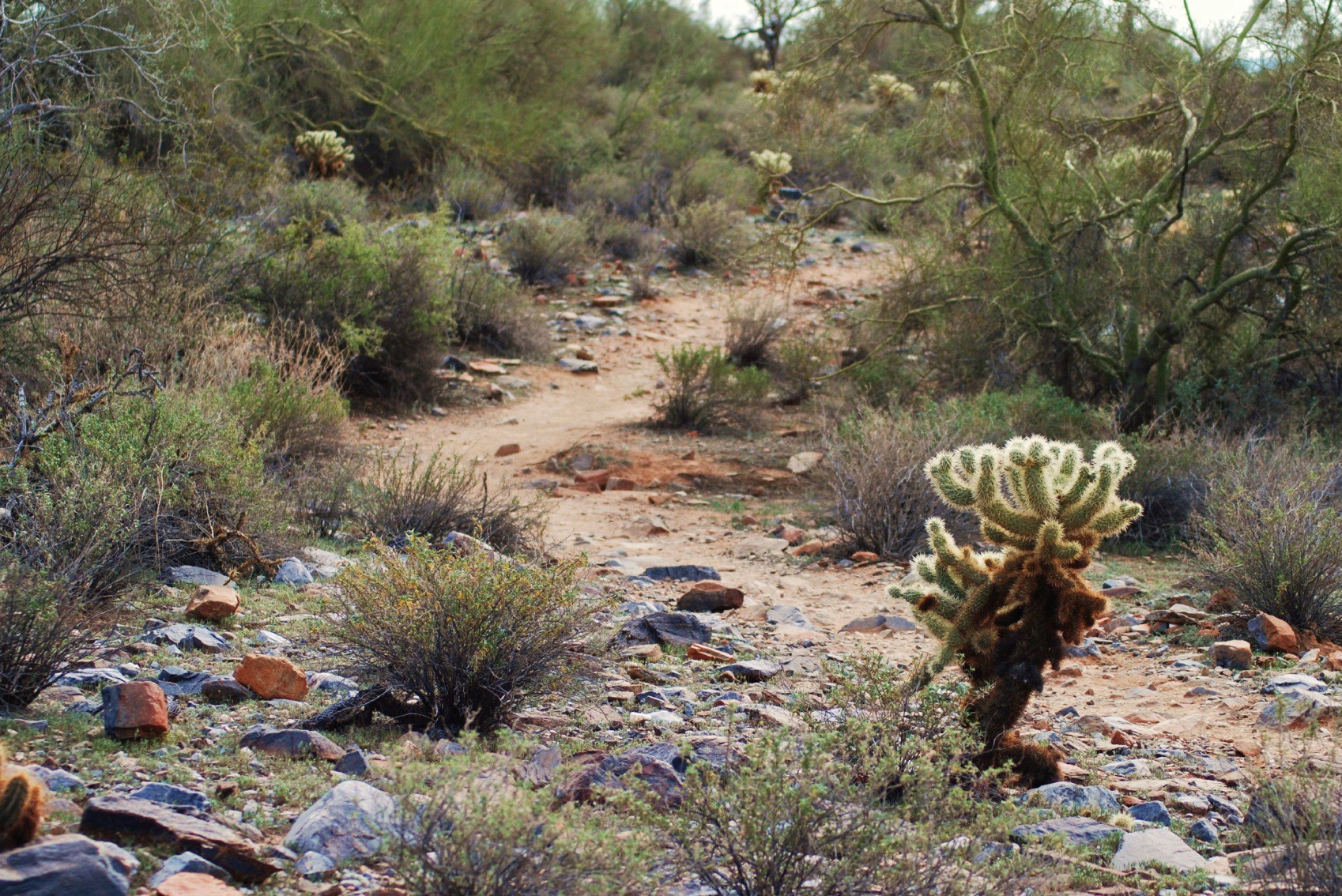
II. THE JOURNEY CONTINUES
There’s something in this that’s unique for us. We must experience it and learn from it, be changed by it or by our response to it, before we can know what we are to be and do for God, and for others. We may not know until months or years later but we will be changed if and as we respond in faith. In this sense then, Lent is connected to our vocation – to our calling. What God thrusts us into, challenges us with, is something unique to our purpose in being here. For Israel, not only the deliverance from slavery, but the time spent in the desert was time and place to discover what it meant to be the God of People, a loved and cared for, special, chosen, royal and priestly nation – a People of Light not just for themselves but for the world.
In the desert, Jesus was presented with options, with alternative ways of being Messiah and doing the work the Father sent Him to do. He combated each evil suggestion from His Adversary with words of faith and understanding of God’s Word. He believed in God’s instruction of how what was to be done, was to be done, and He told Satan so.
Frederick Buechner says something profound that fits here, I think: “During Lent, Christians are to ask themselves the question - what it means to be themselves.”
We can’t get free of it.
The Spirit Who calls us forth, baptizes us and places us where God chooses, will also give a sense of compulsion that we must stay the course. The Spirit works with us to teach, guide, convict and convert. He pleads with us to not stray from the path or fall by the wayside. Perhaps, like the prophet Jeremiah, when we’re overwhelmed and discouraged, and even frustrated with God, when we want to stop or qjuit, we find within that there is a kind of ‘fire in our bones,’ and we cannot contain or refrain, or restrain ourselves from keeping on in being and doing what God has called us to be and to do. We must go on, we must continue; we feel compelled to. We must do as faithfully as we can - for God.
Fire. The Holy Spirit baptizes with fire – brings fire into our lives. God works deliberately to bring and preserve us in our unique purpose for being here.
WARNING: Beware the vipers and rattlesnakes! - and the heat of the day, the cold of the night. Fierce howling physical and spiritual opposition can do us in. Our faith can falter and fail. One can perish in such places at such times. Not all who wander are lost . . . but some who wander are lost, and will remain so. They’ll fail to see and enter into the plans and purposes God had for them. Not everyone makes it through the Journey; some die in the wilderness. They never find and enter the full and final Land of Fadeless Day, the Home of God’s Promise – His Kingdom, His New Creation.
In Israel’s story of wilderness journey wanderings, a whole generation died out; only their children entered the Land. The warning is echoed throughout Scripture – especially in the Book of Hebrews. God’s love and care is constant, never failing, but we can fail to receive God’s gifts and provisions. We can choose to see only the problems and fail to seek God in the midst of them. Ultimately it is a failure of faith, failing to trust God – to believe His Word and Ways and Promises. The writer to the Hebrews refers to the Israelites' wandering in the desert. (the following is slightly paraphrased and incomplete) - So, as the Holy Spirit says - “Today, if you hear his voice, do not harden your hearts as they did in the rebellion, during the time of testing in the wilderness, where your ancestors tested and tried me, though for forty years they saw what I did. That is why I was angry with that generation . . . I made an oath in my wrath - ‘They shall never enter my rest.’ See to it, brothers and sisters, that none of you has a sinful, unbelieving heart that turns away from the living God. But encourage one another daily, as long as it is called “Today,” so that none of you may be hardened by sin’s deceitfulness. We’ve come to share in Christ, if indeed we hold our original conviction firmly - to the very end.
God’s Rest is ‘the Rest’ of Salvation’ - and faith is the key to entering God’s Rest. It’s vital – life-giving and life-sustaining that we trust God through our wilderness times.
Look for Him then and there; He’s especially near.
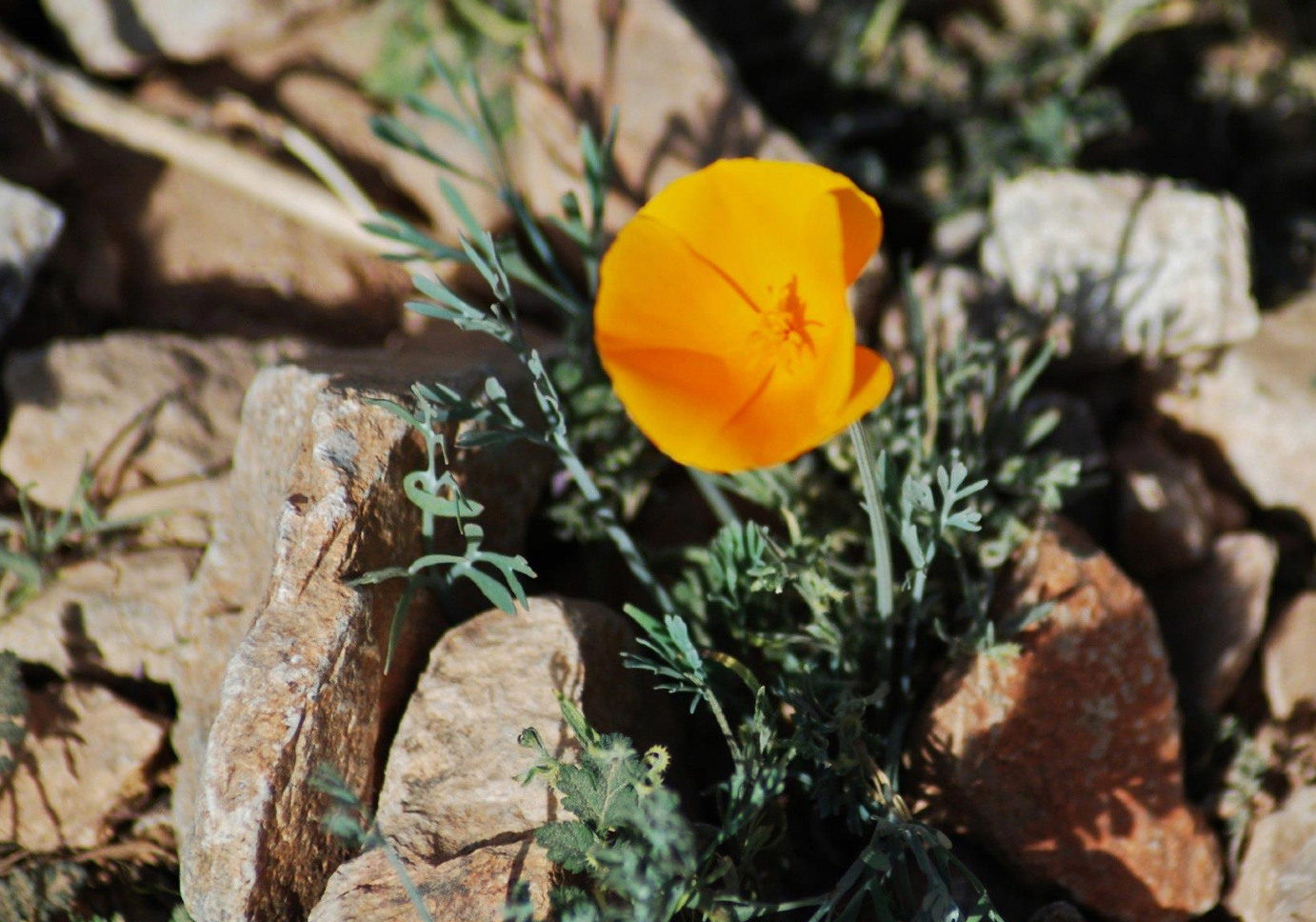
IV. THE JOURNEY WILL END
This too will pass. We are on a Journey - a trek.
If we wait carefully, even in difficult times and places, God’s love, care, power and provision can be experienced and embraced.
If we look, faith-fully we will see traces and tracks of His love even in the desert times of life.
As we travel with God prayerfully - we will leave tracks of love and encouragement - of inspiration . . . for others too.
God is present and He provides. He sustains, feeds, nourishes, provides for and protects His People. “Bidden or unbidden, God is present.” Seen or not seen, angels minister to us Despite all our grumbling and failure, as we trust Him God will bring us through.

